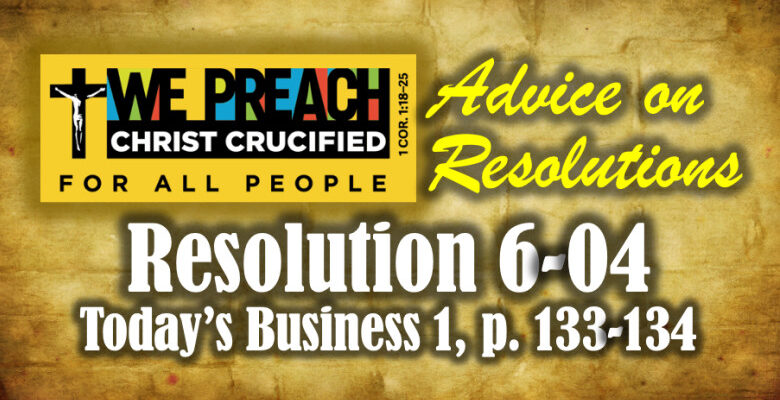What should concern delegates?
While affirming the appropriate role of the lay people in the Church by quoting from a 2018 Commission on Theology and Church Relations report, this resolution then limits the service of the laity with new, undefined terms of “distinctive functions” (line 24) and “pastoral service” (line 26) that run counter to our Confessions.
For instance, we believe, teach, and confess that every Christian is called on to “confess the faith to others” and to “make disciples of all nations” — and everyone has the responsibility to confess their sins to one another and speak and forgiveness from one another — not just pastors. If we limit these “functions” to pastors only, we do so contrary to Scriptural mandates.
In the absence of a pastor, the LCMS has always affirmed a congregation’s ability to have lay people lead worship and read a sermon — distinctive “functions” of the pastoral ministry. Will we now say a pastor is required for people to gather and worship God?
Our international partner churches make extensive use of lay and ordained “evangelists” (not exclusively pastors) to expand God’s Kingdom and plant new congregations.
What about all the hundreds of thousands of people coming to faith in Christ in Ethiopia and Madagascar? These churches accomplish this mostly with men who are preaching and teaching the Word of God without the aid of seminary training (in other words, lay people). We will declare fellowship with the Lutheran Church of Uganda at this convention, built substantially through lay preachers and evangelists over the past 30 years. Will we say they are wrong to do that?
What can be done about it?
Ask for a full definition of “pastoral service” and “distinct functions” of the Office of the Holy Ministry before voting on this resolution. Terms that are not defined are open to broad interpretation in the future.
Remove from the last line of the first Resolve (Page 134, line 26) “and not utilize laity for pastoral service in vacancies, church planting, extension campuses, etc.”
Ask if a pastor is required to be present for people to worship God or may a layman read a sermon and lead prayers without a pastor present.
Ask whether laypeople are to stop practicing the overlapping responsibilities of pastors and laity (such as witnessing, confessing, asking for forgiveness and receiving it from another layperson as we are commanded to by Scripture and pray in the Lord’s Prayer) because they do not hold the pastoral office.

